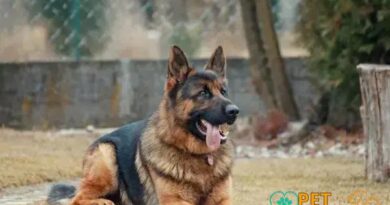What is Fun Training Techniques
Understanding Fun Training Techniques
Fun training techniques are innovative methods designed to make the training process enjoyable for both dogs and their owners. These techniques focus on positive reinforcement, engaging activities, and interactive play, which help to create a strong bond between the dog and the trainer. By incorporating fun into training sessions, dogs are more likely to remain motivated and eager to learn, leading to better results and a happier training experience.
The Importance of Positive Reinforcement
Positive reinforcement is a cornerstone of fun training techniques. This approach involves rewarding desired behaviors with treats, praise, or playtime, which encourages dogs to repeat those behaviors. By using positive reinforcement, trainers can create a positive association with learning, making it a fun and rewarding experience for the dog. This method not only improves obedience but also enhances the dog’s overall well-being and happiness.
Interactive Games for Training
Incorporating interactive games into training sessions is a fantastic way to keep dogs engaged and excited. Games like fetch, hide and seek, or agility courses can be used to teach commands and reinforce good behavior. These activities stimulate the dog’s mind and body, making training feel less like a chore and more like playtime. The key is to ensure that the games are structured to include training elements while still being enjoyable.
Using Toys as Training Tools
Toys can serve as excellent tools for fun training techniques. By using toys that the dog loves, trainers can motivate them to participate in training sessions. For example, using a favorite ball or tug toy can encourage a dog to follow commands or complete tasks. This method not only makes training more enjoyable but also helps to strengthen the bond between the dog and the owner through shared play experiences.
Incorporating Tricks into Training
Teaching tricks is another effective way to implement fun training techniques. Tricks like rolling over, playing dead, or spinning can be taught using positive reinforcement and playful interactions. These tricks not only entertain but also challenge the dog’s cognitive abilities. The process of learning new tricks can be incredibly rewarding for both the dog and the trainer, fostering a sense of accomplishment and joy.
Socialization Through Fun Activities
Socialization is a crucial aspect of a dog’s development, and fun training techniques can facilitate this process. Group training classes or playdates with other dogs provide opportunities for social interaction while reinforcing training commands. Engaging in fun activities with other dogs helps to build confidence and improve social skills, making it an essential component of a well-rounded training program.
Creating a Positive Training Environment
A positive training environment is vital for the success of fun training techniques. This includes minimizing distractions, ensuring the space is safe, and maintaining a calm demeanor. When dogs feel secure and relaxed, they are more likely to engage in the training process. Additionally, trainers should be patient and understanding, allowing dogs to learn at their own pace while celebrating their successes, no matter how small.
Setting Realistic Goals for Training
Setting realistic goals is an important part of implementing fun training techniques. Trainers should establish achievable objectives that allow for gradual progress. This approach helps to maintain motivation and prevents frustration for both the dog and the trainer. By celebrating small victories along the way, trainers can create a positive feedback loop that encourages continued learning and engagement.
Monitoring Progress and Adjusting Techniques
Regularly monitoring a dog’s progress is essential when using fun training techniques. Trainers should observe how the dog responds to various methods and be willing to adjust their approach as needed. If a particular technique is not yielding the desired results, it may be time to try a different game, reward, or command. Flexibility in training methods ensures that the process remains enjoyable and effective for the dog.
Conclusion: The Joy of Fun Training Techniques
Fun training techniques not only enhance a dog’s learning experience but also strengthen the bond between the dog and the owner. By focusing on positive reinforcement, interactive games, and a supportive training environment, trainers can create an enjoyable atmosphere that fosters growth and development. Embracing these techniques leads to a happier, more well-adjusted dog and a more fulfilling training journey for both parties involved.



